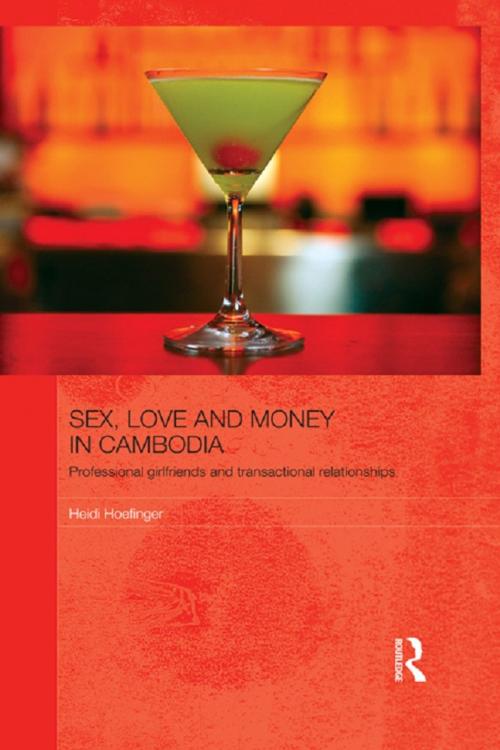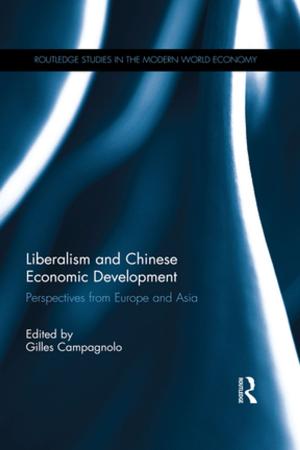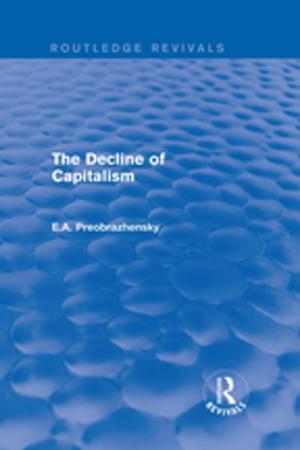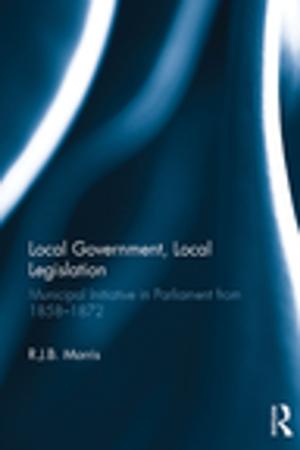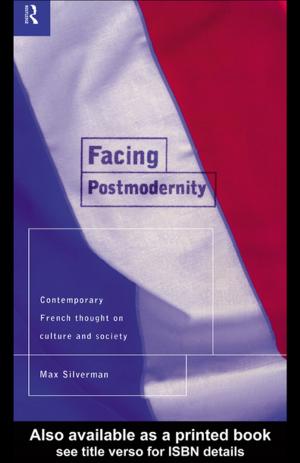Sex, Love and Money in Cambodia
Professional Girlfriends and Transactional Relationships
Nonfiction, Social & Cultural Studies, Social Science, Cultural Studies, Ethnic Studies| Author: | Heidi Hoefinger | ISBN: | 9781317931249 |
| Publisher: | Taylor and Francis | Publication: | July 4, 2013 |
| Imprint: | Routledge | Language: | English |
| Author: | Heidi Hoefinger |
| ISBN: | 9781317931249 |
| Publisher: | Taylor and Francis |
| Publication: | July 4, 2013 |
| Imprint: | Routledge |
| Language: | English |
Dealing with the complex and discomforting ‘grey ‘area where sex, love and money collide, this book highlights the general materiality of everyday sex that takes place in all relationships. In doing so, it draws attention to and destigmatizes the transactional elements within many ‘normative’ partnerships – be they transnational, inter-ethnic or otherwise.
Focusing on Cambodia, and on a subculture of young women employed in the tourist bar scene referred to as ‘professional girlfriends’, the book shows that the resulting transnational relationships between Cambodian women and their foreign partners are complex and multi-layered. It argues that the sex-for-cash prostitution framework is no longer an appropriate model of analysis. Instead, a new vocabulary of ‘professional girlfriends’ and ‘transactional sex’ is used, with which the nuanced complexities of these transnational partnerships are analysed.
Interdisciplinary in nature, the book inspires new understandings of gender, power, sex, love, desire, political economy and materiality within everyday relationships around the globe. It is a useful contribution for students and scholars of Anthropology, Sociology, Southeast Asian Studies, Gender and Sexuality Studies, and Cultural Studies.
Dealing with the complex and discomforting ‘grey ‘area where sex, love and money collide, this book highlights the general materiality of everyday sex that takes place in all relationships. In doing so, it draws attention to and destigmatizes the transactional elements within many ‘normative’ partnerships – be they transnational, inter-ethnic or otherwise.
Focusing on Cambodia, and on a subculture of young women employed in the tourist bar scene referred to as ‘professional girlfriends’, the book shows that the resulting transnational relationships between Cambodian women and their foreign partners are complex and multi-layered. It argues that the sex-for-cash prostitution framework is no longer an appropriate model of analysis. Instead, a new vocabulary of ‘professional girlfriends’ and ‘transactional sex’ is used, with which the nuanced complexities of these transnational partnerships are analysed.
Interdisciplinary in nature, the book inspires new understandings of gender, power, sex, love, desire, political economy and materiality within everyday relationships around the globe. It is a useful contribution for students and scholars of Anthropology, Sociology, Southeast Asian Studies, Gender and Sexuality Studies, and Cultural Studies.
